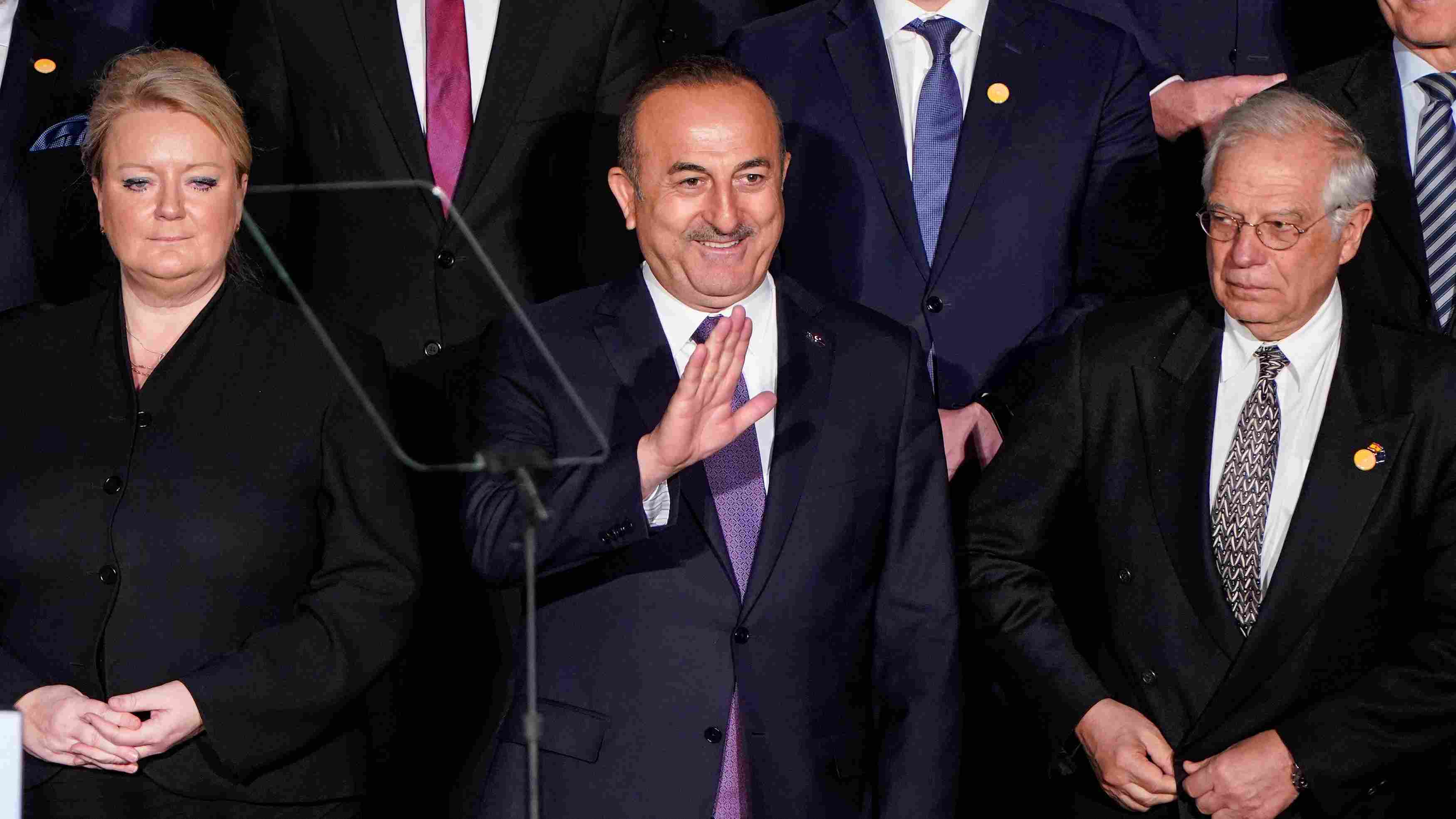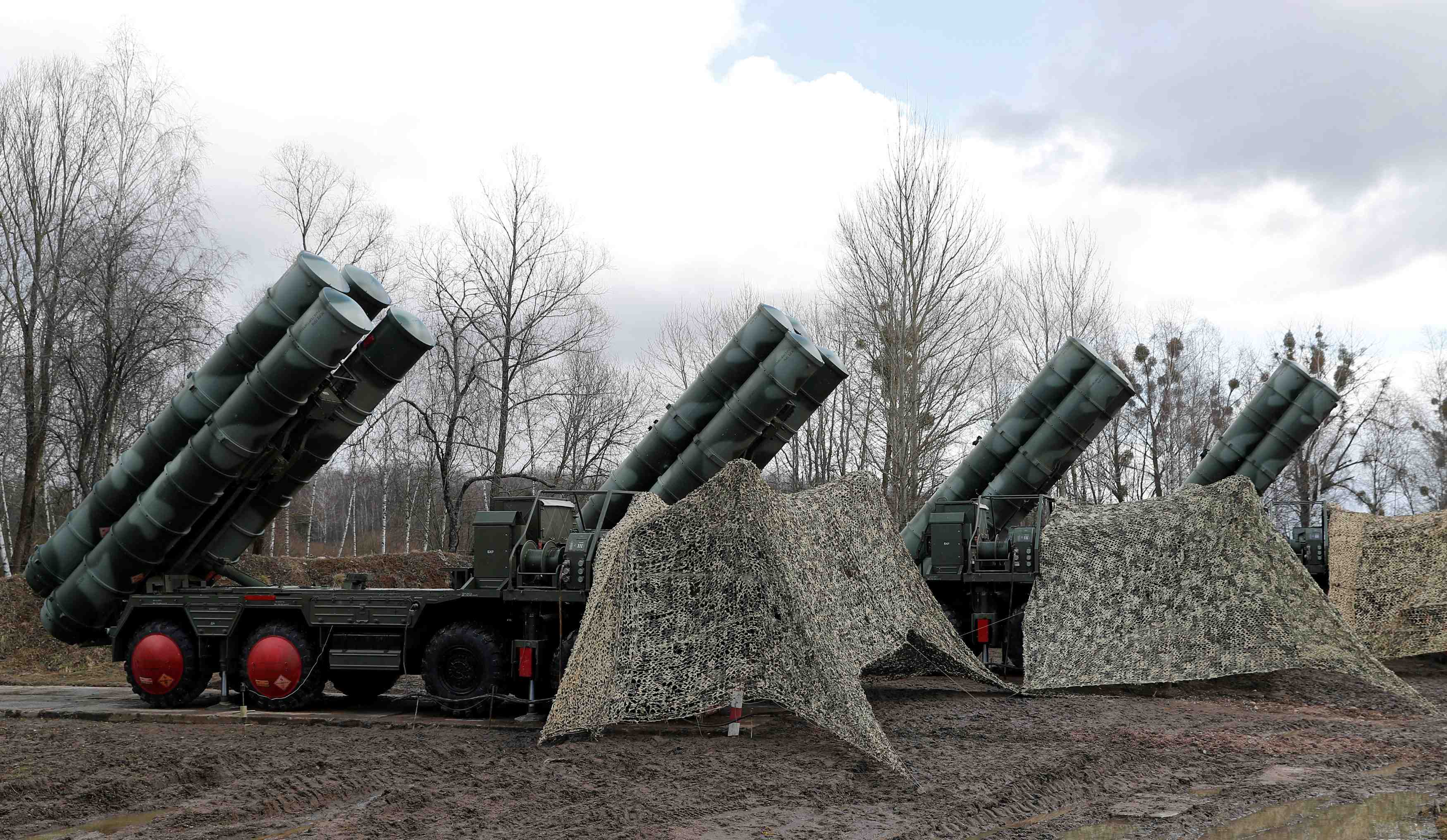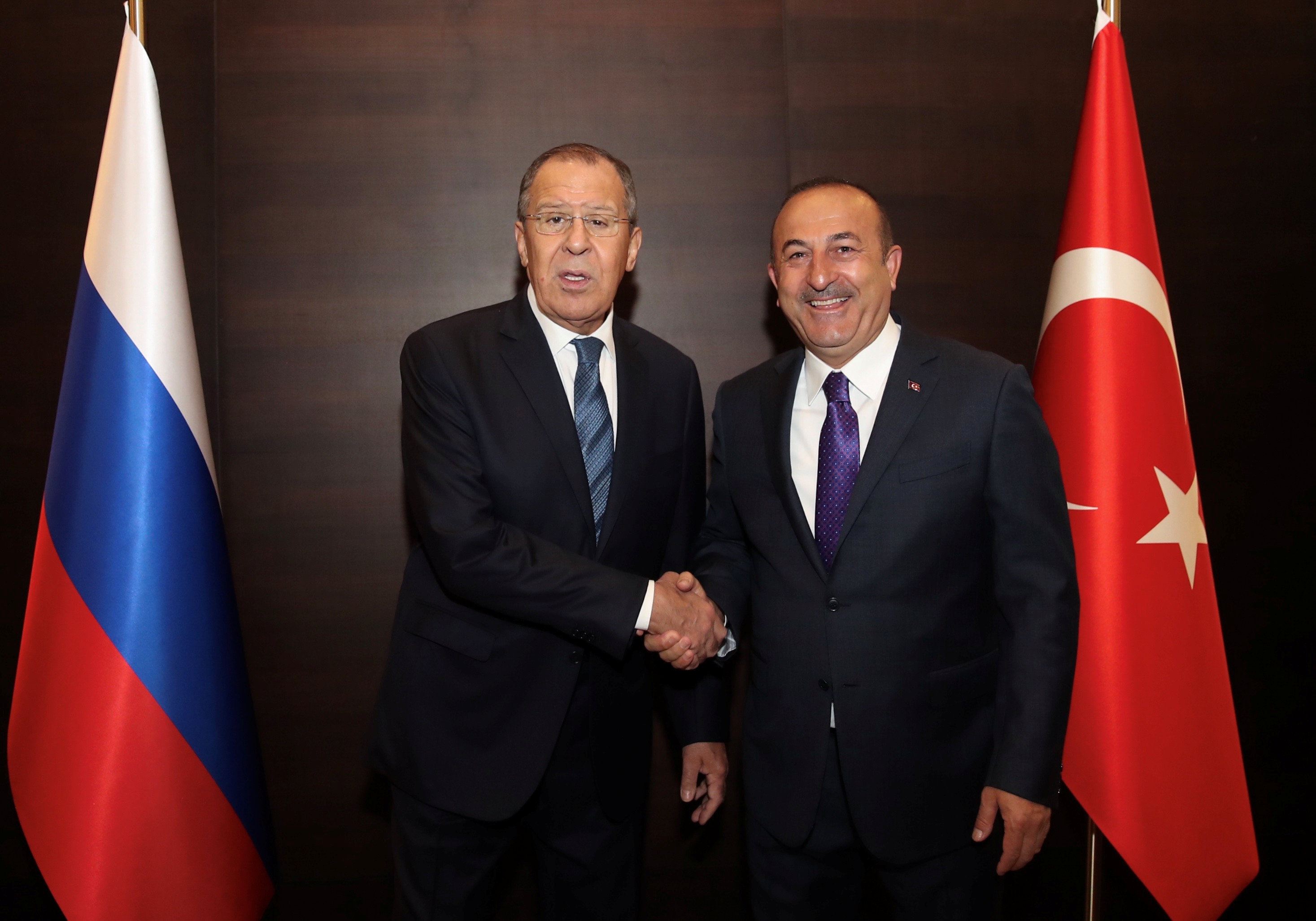
World
12:49, 08-Apr-2019
S-400 missile defense system dispute leaves Turkey stuck between allies
Michal Bardavid

Ankara has found itself stuck between two of its allies, Washington and Moscow, both of which are important for Turkey in many different ways, economically, politically, and in terms of security. The issue of conflict is Turkey's purchase of an S-400 missile defense system from Russia, a move that the U.S. says compromises the F-35 Joint Strike Fighter program.
In response, Washington has recently announced it has halted the delivery of equipment related to the F-35 fighter aircraft to Turkey. The U.S. insists Ankara must choose between NATO or Russia, but Turkey's Foreign Minister Mevlut Cavusoglu argues this cannot be expected of Turkey.
Cavusoglu states that "Any country in our region, actually, has no other option but should balance its relations with everybody in the region. And our relations with Russia are not an alternative to NATO allies nor to our EU policy or our European partnership and ambitions."
Turkish officials have repeatedly stated the S-400 agreement with Russia was a "done deal" they cannot back out of. Meantime, U.S. Vice President Mike Pence has warned Turkey would risk expulsion from the F-35 program which he said would harm Turkey's defense capacity.

The Russian S-400 missile defense system displayed in Russia. /Reuters Photo
The Russian S-400 missile defense system displayed in Russia. /Reuters Photo
Some military analysts say Turkey will need to take its national security into consideration. Naim Baburoglu is a faculty member at the Istanbul Aydin University and a retired brigadier general that has served in NATO as well.
Baburoglu stresses that "Turkey cannot give up on NATO, not under today's political circumstances. Turkey doesn't just need a missile defense system. It needs NATO's alliance umbrella. Turkey is under several threats, there's the East Mediterranean, the power struggle regarding energy security in the East Mediterranean, the Aegean issues, and also issues with NATO member Greece and Greek Administration of Southern Cyprus."
From his experience in NATO, Baburoglu says that he would expect NATO and the U.S. to take multiple steps if Turkey does not back down.
"They would stop delivering F35 fighter jets to Turkey… second, the pilot trainings would also halt, let's say S-400s are received in July, then the Turkish pilot training would stop right after that. Also it would not only end the delivery of F-35s but also impose sanctions on other warplanes such as the F-16s and other military systems."
However, Turkey's decision to withdraw from the deal with Russia would potentially have many negative effects, too, regarding Ankara-Moscow ties.

Turkish Foreign minister Mevlut Cavusoglu with Russian Foreign Minister Sergei Lavrov in Antalya. /Reuters Photo
Turkish Foreign minister Mevlut Cavusoglu with Russian Foreign Minister Sergei Lavrov in Antalya. /Reuters Photo
Turkey has been cooperating with Russia over the Syrian conflict where both countries are acting as guarantor states. Backing away from the deal could also hurt Turkey's image, Baburoglu says. "If Turkey, a serious country with regional power and rooted history walks back on a deal it has signed, that would cause a negative impact; it could damage its prestige and reputation."
There could be economic consequences as well. Following a dispute with Washington last year, Turkey's economy had taken a hit. An escalation of tension with NATO allies could once again trigger a crisis.
As Turkey tries to find a balance between Washington and Moscow, it seems Ankara will find it difficult to keep both sides happy and will need to find a solution to this issue, but which way it will go, who will make the compromise is yet to be seen.
The S-400 deal will likely be top of the agenda for Turkish President Recep Tayyip Erdogan who is headed to Moscow to meet with his Russian counterpart Vladimir Putin on April 8.
(Cover image: Turkish Foreign Minister Mevlut Cavusoglu waves during a reception for NATO foreign ministers to celebrate NATO's 70th anniversary, Washington, April 3, 2019. /Reuters Photo)

SITEMAP
Copyright © 2018 CGTN. Beijing ICP prepared NO.16065310-3
Copyright © 2018 CGTN. Beijing ICP prepared NO.16065310-3